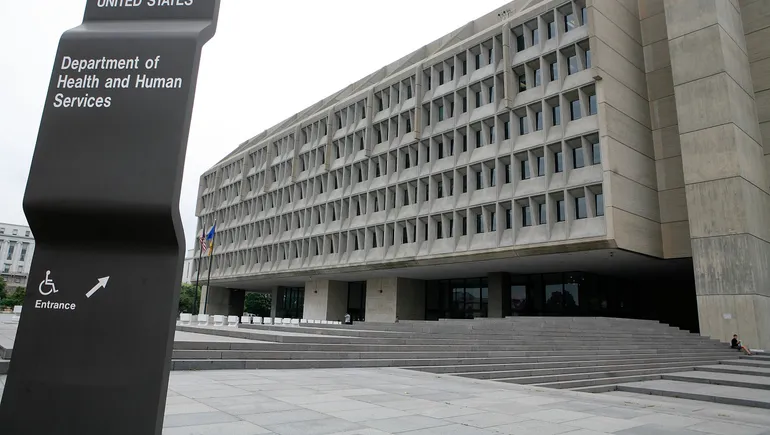- Healthcare 150
- Posts
- Deal Radar: IoT’s $368B Health Edge—Who Buys Connectivity?
Deal Radar: IoT’s $368B Health Edge—Who Buys Connectivity?
An 8× surge in connected care opens lucrative roll-up lanes in monitoring and smart-hospital tech—if acquirers can price the mounting cyber risk.
Good morning, ! This week we're diving into the Healthcare’s massive IOT market, AI in healthcare market share, the industrial scale fraud that recently hit U.S Healthcare, and the mental health VC rebirth.
Join 50+ advertisers who reach our 400,000 executives: Start Here.
Know someone in the healthcare space who should see this? Forward it their way. Here’s the link.
— The Healthcare150 Team
DATA DIVE
Healthcare IoT’s $368B Reality Check

The healthcare IoT market is on track to 8x in size, jumping from $44B in 2023 to a projected $368B by 2034. Fueling this surge? A mashup of remote monitoring, smart hospitals, and your grandma’s new heart-tracking smartwatch. While North America leads with 35% market share, Asia Pacific is coming in hot, driven by urbanization and national digital health pushes. But here’s the catch: the sector’s becoming a cyberattack buffet, with 43M+ patient records breached in H1 2024 alone. Translation: innovation’s booming, but so is the surface area for risk.
TREND OF THE WEEK
Industrial-Scale Fraud Hits U.S. Healthcare
The U.S. Justice Department just revealed a staggering $14.6B in attempted fraud schemes targeting Medicare and Medicaid—its largest-ever healthcare fraud takedown. Charges have been filed against 324 defendants, including 93 medical professionals, and $245M in assets have been seized.
Among the most audacious: a transnational scheme run out of Eastern Europe using stolen identities to funnel $10B in false claims through dozens of U.S. medical supply companies. One retiree found himself billed $15,500 for catheters he never needed.
Why it matters: This isn’t petty crime. These are industrial-scale operations, some state-linked, weaponizing loopholes in federal healthcare to siphon off billions. Investors and operators should expect heightened regulatory scrutiny, particularly in claims processing, durable medical equipment, and telehealth billing. Risk models across payers, revenue cycle management vendors, and fraud-detection platforms will need an upgrade.
Bottom line: The healthcare system isn’t just vulnerable—it’s being systematically targeted. Compliance, audits, and AI-powered fraud detection just moved from backend hygiene to board-level strategy. (More)
Train your healthcare teams for real-world scenarios

PETE is the only tool you need for creating and managing courses in your own virtual academy — no training department needed. From compliance to patient care, get your healthcare staff up to speed faster and easier with PETE's AI-powered training solution.
MARKET MOVERS
Company (Ticker) | Last Price | 5D |
Eli Lilly and Company (LLY) | $ 772.87 | -0.33% |
Johnson & Johnson (JNJ) | $ 155.27 | 1.88% |
Novo Nordisk A/S (NVO) | $ 69.32 | 0.43% |
Roche Holding AG (ROG.SW) | $ 318.55 | -2.38% |
AbbVie Inc. (ABBV) | $ 187.63 | 2.92% |
HEALTHTECH CORNER
Mental Health’s VC Rebound

After a sobering 2023, mental health tech is back in investors’ good graces. Venture funding surged 42% year-over-year to $2.7B in 2024, according to Galen Growth, outpacing most digital health sectors. The rebound isn’t a fluke. A mix of corporate urgency, burnout economics, and cultural destigmatization is driving renewed demand for scalable mental wellness tools. For startups, that means real traction. For VCs, it’s validation that mental health isn’t just a social imperative—it’s a growth asset. (More)
TOGETHER WITH 4AM MEDIA
These Are The Rolls-Royce Of Hearing Aids (And Under $100)
Oricle Hearing gives you crystal-clear sound, wireless charging, and all-day battery life for under $100. No doctor visits, no crazy prices—just amazing hearing at an unbeatable deal.
Discover how these affordable hearing aids are changing the lives of people everyday.
DEAL OF THE WEEK
Merck’s $10B Play for Lung Power
Merck is nearing a $10B acquisition of Verona Pharma, a London-based biotech focused on respiratory diseases, according to the Financial Times. The all-cash offer of $107 per ADS represents a 23% premium over Verona’s last close and would be Merck’s largest deal since 2023.
The strategic logic is clear: Merck is preparing for Keytruda’s 2028 patent cliff and needs durable revenue in other therapeutic areas. Verona’s lead asset, Ohtuvayre—a newly approved, inhalable COPD drug—generated $76M in Q1 revenue, with 96%+ tied to that product alone. The acquisition could accelerate Ohtuvayre’s global rollout, giving Merck a foothold in a chronic condition impacting ~16M Americans.
This is part of a broader pivot: Merck has recently explored deals with MoonLake Immunotherapeutics and Jiangsu Hengrui. It’s not just about the drug pipeline—it’s about securing post-Keytruda growth.
Why it matters: Investors should note Merck’s aggressive capital allocation toward assets with near-term revenue and global scale-up potential. With valuations pressured and specialty biotechs seeking scale, 2025 could be a ripe year for pharma M&A. (More)
REGIONAL FOCUS
AI in Healthcare: Still a One-Region Race

North America continues to dominate AI in healthcare, holding 45% of global market share in 2024. The U.S. alone is eyeing a 36.94% CAGR through 2034—fueled by tech giants, chronic care needs, and a regulation-friendly climate. Europe follows with 27%, led by NHS-driven initiatives in the UK. Meanwhile, Asia-Pacific is the quiet disruptor: fast-growing thanks to smart hospital investments, mobile-first infrastructure, and aging demographics. China’s strategic tech-health alliances make it the region’s epicenter. LATAM and MEA remain small players, but the direction is clear—where there’s infrastructure and urgency, AI follows. (More)
INTERESTING ARTICLES
"Success is not the key to happiness. Happiness is the key to success. If you love what you are doing, you will be successful."
Albert Schweitzer





